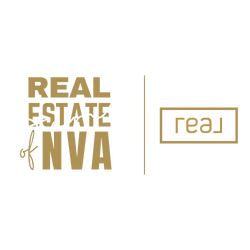Losing a family member is a devastating experience. It can feel difficult to proceed with managing your loved one’s estate while you’re still in the grieving process, but properly handling their home and belongings is important.
Managing an estate is an enormous responsibility that you face during an emotional time, so it’s not uncommon for people to make mistakes. To avoid any issues down the road, you should approach this task very carefully. Here are eight mistakes to avoid when handling a family member’s estate:

1. Not Managing Debts First
Laws regarding debts for deceased individuals can be complicated. If your loved one had debt, you should consult with a lawyer or financial advisor on how this situation should be handled. In most cases, the individual’s heirs are not responsible for paying off the debt, but the estate is.
Understanding your relative’s debts will help you make a plan as you manage the rest of their estate. Before you sell the home or divide up their belongings, you need to know how much of the proceeds will go to creditors.

2. Failing to Secure Assets
If you’re taking responsibility for handling your family member’s estate, you need to immediately ensure that all of their assets are protected both physically and legally. Unfortunately, burglars and squatters sometimes target the homes of deceased individuals. To keep your relative’s home safe, ensure that all doors and windows are locked. Visit the home regularly to check on it, and if possible, install or activate a security system.
You also should make sure that the estate is up-to-date on mortgage and property tax payments. Defaulting on a payment can lead to a tricky and stressful legal situation, so keeping the property in good standing is a priority.
Your relative’s belongings must be secured, too. Sometimes, executors start distributing items to the beneficiaries too early, but this makes it difficult to get a full and accurate understanding of the deceased person’s assets. Before anyone takes any items from the home, you should carefully sort through and catalog or document the belongings.

3. Undervaluing Items
Not recognizing the value of certain items is a major mistake when handling an estate. While most people know that some possessions, like jewelry or fine china, have the potential to be very valuable, other items may be more deceptive. Tools, clothing, artwork, crafting supplies, and a wide variety of other possessions may be inexpensive and hold mostly sentimental value, or they may be worth a great deal of money.
To make sure you have an accurate understanding of the value of your loved one’s possessions, you can work with an appraiser. Most appraisers charge by the hour, but it’s worth paying the fee to confirm the value of the estate.

4. Overvaluing Items
While undervaluing the estate could cause you and the other beneficiaries to lose money, overvaluing can also be a problem. People often overvalue items because they look expensive, but in reality, the belongings may not have a high dollar value.
Fortunately, you can’t measure sentimental value in dollars. If clothing, artwork, or other items don’t appraise for much, you or your other family members could keep the possessions as mementos without having to deliberate about whether or not you should sell them.

5. Sorting Without a System
Going through each and every one of your loved one’s possessions while handling their estate can be overwhelming. A common mistake is to sort through the items one by one in each room. While this may be the most intuitive way to complete the task, it can result in quite a bit of disorganization and confusion.
Instead, you may find it easier to start with a category of items. For example, to take care of the most important belongings first, you could begin by searching every room for legal and medical documents and consolidating them into a bin, box, or folder. Then, you could look for photographs or other sentimental items. By working through the categories one at a time, you’ll find it easier to stay on track and maintain your system of organization.

6. Forgetting the Attic or Basement
You never know what you’ll find in your family member’s attic or basement. While some people use these rooms only to store unneeded or low-value items, others keep incredibly valuable and interesting possessions in these spaces. You might stumble upon an antique you could auction off, or you may find some wonderful keepsakes with great sentimental value.

7. Rushing the Process
You need to find a balance when timing the handling of your loved one’s estate. Rushing the process is a common mistake that can lead to countless errors. Some people want to sort through the estate as quickly as possible because the experience is too painful after the loss, and some people rush because they’re worried that delaying will cause legal complications.
You and your family are grieving, so you likely need to take some time to process your loss before you feel ready to handle the estate. While you shouldn’t wait more than a couple weeks to get started, you don’t have to feel an intense sense of urgency. As long as you’re working through the estate and making regular contact with the other parties involved, you should be on track.

8. Not Consulting an Expert
Regardless of whether or not your loved one has a will, managing their estate can be challenging, and trying to handle everything on your own may be the biggest mistake. Even small estates involve a number of components, including a home, bank accounts, possessions, and other considerations. There are many legal and financial guidelines you must abide by, too, which can further complicate the situation.
You have many sources of support when handling a loved one’s estate. First, you can consult with a real estate agent if you have questions regarding the house. A realtor can help you determine what financial steps to take to keep the property in good standing, and they can assist you if you decide to sell the home. You should also be in touch with an estate lawyer or financial advisor. These experts can offer a wealth of wisdom on managing your loved one’s estate and handling their assets and debts.
Bottom Line
It’s easy to make mistakes when dealing with a family member’s estate after their passing. You have to keep careful track of their assets and ensure that you’ve satisfied all obligations to creditors and to the individual’s beneficiaries. To get through this challenge with minimal issues, you should do careful research and consult with experts before taking action.
Selling? Be sure to check out the Home Valuation Tool and email me for your personalized Home Value Report!
Buying? Calculate Your Future Mortgage and check out rates!
Check out the Home Buying and Selling Guides!
I look forward to speaking to you soon!




